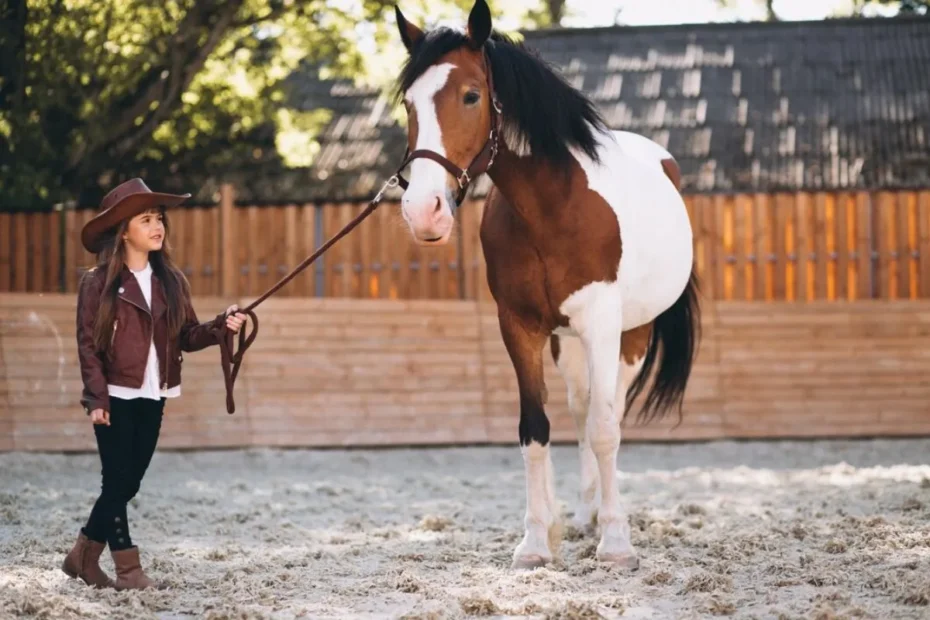Grain-Free Diets for Horses have become a hot topic among equine enthusiasts. The switch to these diets is driven by the need for improved equine health and performance.
Grains, while traditionally used, can sometimes lead to health issues. This has led to a growing interest in alternative horse feed methods.
In this article, we will delve into the benefits of grain-free diets and how to implement them effectively.
Understanding Grain-Free Diets for Horses
A grain-free diet excludes all cereal grains. Horses, as non-ruminant herbivores, naturally thrive on forage.
Grains offer high energy, but they can disrupt the horse’s digestive system. Switching to a diet focused on forage mimics their natural eating behavior.
Understanding the benefits and requirements of such a diet is essential for any horse owner considering this shift.
The Benefits of Grain-Free Diets
One principal benefit is improved digestive health. Horses’ digestive systems are designed to process fibrous plants rather than high-starch grains.
Another advantage is the elimination of grain-related allergies, which can lead to inflammation and other health issues.
Additionally, grain-free diets can contribute to better overall equine health by providing balanced nutrition without the negative side effects of grain consumption.
Improved Digestive Health
High-starch grain diets can cause numerous digestive issues in horses, including colic, gastric ulcers, and hindgut acidosis. By switching to a grain-free diet, you minimize these risks, ensuring a more natural and healthier process of digestion.
Forage-based diets encourage proper chewing and saliva production, aiding in more effective nutrient absorption. This approach supports the horse’s overall digestive health and well-being, promoting a more balanced and natural diet.
Incorporating a variety of forages can provide essential nutrients while reducing the likelihood of digestive problems. By focusing on a forage-based diet, horse owners can enhance their horse’s health and longevity.
Elimination of Allergies
Grain-related allergies can manifest as skin eruptions, respiratory issues, and general discomfort, so removing grains from the diet can alleviate these symptoms, providing your horse with much-needed relief. A diet devoid of allergens results in better coat condition and overall well-being.
By eliminating grains, you help improve your horse’s health, reducing allergic reactions and enhancing their quality of life. This approach promotes a healthier, more comfortable existence for your horse, ensuring they thrive.
Consistent monitoring and dietary adjustments are crucial to maintain the benefits of a grain-free diet. Working with an equine nutritionist can help ensure all nutritional needs are met, further supporting your horse’s health.
Enhanced Equine Health
Horses on grain-free diets often show improved weight management and muscle tone, as these diets provide essential nutrients without the excess calories and starch found in grains. Overall, the switch can lead to enhanced endurance and performance, crucial for working and competitive horses.
By removing grains, you ensure a more balanced intake of nutrients, promoting better physical condition and stamina. This change supports the horse’s overall health and performance, making it an ideal choice for active and competitive equines.
Consistent monitoring and dietary adjustments are key to maintaining these benefits. Working with an equine nutritionist can help ensure the diet meets all nutritional needs, optimizing the horse’s health and performance.
Implementing Grain-Free Diets for Horses
Transitioning to a grain-free diet requires careful planning and understanding of your horse’s nutritional needs.
Here’s a step-by-step guide to help you make a smooth transition:
Assessment of Nutritional Needs
Before making any changes, it’s crucial to assess your horse’s current diet, consulting with an equine nutritionist. Identify the nutrients provided by grains and find suitable grain-free options to replace those. Monitor your horse’s condition and performance throughout the transition process.
By evaluating the existing diet, you can ensure that all nutritional needs are met without grains, providing a balanced and healthy alternative. Regular monitoring helps in tracking the horse’s response to the new diet, allowing for timely adjustments.
Consistent assessment and expert guidance are key to a successful transition. This approach ensures that your horse maintains optimal health and performance during and after the dietary change.
Transitioning Process
A sudden change in diet can be stressful for horses, so implement the transition gradually over a period of two weeks, starting by mixing the new grain-free feed with the old feed, gradually increasing the proportion of grain-free feed. Monitor your horse for any signs of digestive upset, and adjust the transition pace accordingly.
By taking a gradual approach, you help minimize stress and potential digestive issues, ensuring a smoother transition. Observing your horse’s response allows for timely adjustments, promoting better acceptance of the new diet.
Patience and careful monitoring are essential during this period, helping to maintain your horse’s health and well-being throughout the dietary change.
Choosing the Right Forage
- Hay: Ensure high-quality hay that is free from mold and dust.
- Haylage: Fermented forages are also a good option.
- Pasture: Fresh pasture provides essential nutrients and variety.
Supplementation
Since grains are a significant source of vitamins and minerals, ensure these are adequately supplemented in a grain-free diet, providing vitamins like A, E, and B-complex, and minerals such as zinc and selenium through either supplements or fortified feeds. Amino acids, particularly lysine, methionine, and threonine, are also crucial for muscle development and repair.
By incorporating these essential nutrients, you can maintain your horse’s health and support its physical development. Proper supplementation helps in preventing deficiencies and ensures that the horse receives a balanced diet.
Regularly reviewing and adjusting the diet based on the horse’s needs and performance will contribute to their overall well-being and optimal health. This proactive approach will help in successfully maintaining a grain-free diet while supporting the horse’s nutritional requirements.
Regular Monitoring and Adjustment
Regularly monitor your horse’s weight, coat condition, and energy levels, making necessary adjustments to the diet based on seasonal changes, workload, and health status. Consistency and patience are key to successfully implementing and maintaining a grain-free diet.
By observing these factors, you can ensure your horse remains healthy and well-nourished. Adapting the diet as needed helps in addressing any nutritional gaps and supports overall well-being.
Remember to stay vigilant and responsive to your horse’s needs, making gradual changes when required. This approach will help in achieving a balanced and effective grain-free diet for your horse.
Common Challenges and Solutions
Switching to a grain-free diet can present challenges. Here’s how to overcome some common issues:
Initial Resistance
Your horse might initially resist the new diet, so gradually mix old and new feeds to help them adjust, adding a small amount of molasses to make the new feed more palatable. Patience is essential; persistence with gradual changes will ensure long-term success.
Introducing new feeds slowly can prevent digestive upset and increase acceptance. By blending the old and new feeds over time, horses are more likely to adapt without stress, making the transition smoother.
Remember, consistency and monitoring are key. Observing your horse’s reaction and making adjustments as needed will help maintain their health and well-being throughout the dietary change process.
Supplying Adequate Energy
Grains are rich in calories, so replacing them can be challenging, especially for high-performance horses, making the use of high-fat supplements like flaxseed, beet pulp, and oil necessary to provide the required caloric intake. These energy-rich alternatives can support performance without risking digestive issues.
Incorporating these supplements helps maintain the energy levels needed for performance while ensuring the horse’s digestive system remains healthy. By carefully selecting and balancing these alternatives, owners can meet the dietary needs of their high-performance horses effectively.
Regular consultation with an equine nutritionist ensures that the diet remains balanced and adjusted according to the horse’s performance demands, preventing any nutritional deficiencies and promoting overall health.
Maintaining Balanced Nutrition
Grains supply essential vitamins and minerals, so balance is key when removing them from the diet, using fortified feeds and specialized supplements to address potential deficiencies. Regular monitoring and consultation with an equine nutritionist will ensure nutritional needs are met.
It’s important to adjust the diet carefully, considering the individual needs of each horse, and to provide a balanced intake of nutrients. By incorporating these strategies, horse owners can maintain optimal health and performance, even without grains in the diet.
Maintaining a balanced diet through careful planning and the use of appropriate supplements helps in preventing health issues and promotes overall well-being. Regular check-ups and nutritional assessments are crucial in adapting the diet to the horse’s needs.
Your Path to a Healthier Horse
Grain-Free Diets for Horses offer numerous benefits, including improved digestive health and allergy reduction. By assessing nutritional needs, transitioning slowly, and using suitable supplements, you can enhance your horse’s well-being.
Smooth implementation requires patience, observation, and continuous adjustment. Your dedication to a healthier, more natural diet will lead to a happier, more vibrant horse.
Ready to make the switch? Start today and see the positive changes in your equine companion. For more tips and support, subscribe to our newsletter or join our community forum.
Questions You Should Ask
Here are some important questions to address when considering a grain-free diet for your horse:
1. What are the primary signs that my horse needs a grain-free diet?
Look for digestive issues, weight management problems, and allergy symptoms. These might indicate a grain-free diet is beneficial.
2. Can a grain-free diet meet all of my horse’s nutritional needs?
Yes, with proper planning and supplementation, a grain-free diet can be nutritionally complete and beneficial.
3. How long does it take for a horse to adjust to a grain-free diet?
Typically, the transition takes about two weeks. Monitor closely and adjust the pace based on your horse’s response.
4. Are all horses suitable candidates for grain-free diets?
Most horses can benefit, but always consult an equine nutritionist. Some specific health issues may require tailored approaches.
5. What are the best grain-free diet options for performance horses?
High-fat options like beet pulp, flaxseed, and oil provide necessary energy without digestive risks.

